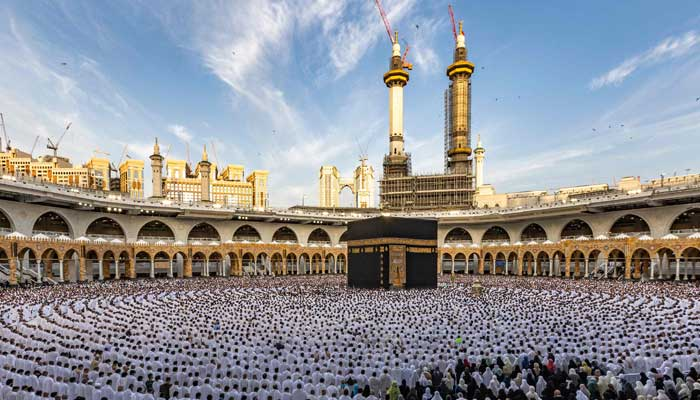Understanding each other
Many of the target population we will encounter in Birmingham come from Islamic backgrounds, with a varying degree of devotion. I am comforted by Jesus' words in John 6:44, "no one can come to me unless the Father who sent me draws him to me." Our role in Birmingham is simply to demonstrate the love of God, and when appropriate, share our hope in Him. Ultimately, our goal is to connect the local population with the long-term staff of Oikos Church and Greater Europe Mission. However, in reaching out with compassion, it seemed appropriate to investigate Islam, and what are the key differences in belief between Christianity and Islam.
Overview:
Islam originated between 609 and 632, during which time Mohammad received a series of visions telling him to "recite." His followers compiled the recitations, resulting in the Quran. One of the most controversial points for polytheist tribes on the Arabian Peninsula in early Islam was the concrete concept that "God is one," for which Mohammad was persecuted in Mecca. Mohammad and his followers migrated to Medina where he united various polytheistic tribes and shared his revelations. In 629, he led an army of 10,000 Muslim converts and overtook Mecca largely without bloodshed. By his death in 632, most of the Arabian Peninsula had converted to Islam.In addition to the revelations in the Quran, most Muslims also follow the rules and guidance recorded in additional volumes known as the hadith, which contain the oral tradition of the historic and practical observations of Mohammad and his followers. Finally, teaching and interpretations by Grand Imams (whose succession of leadership appears to me like the Popes) are taught throughout generations and shape the practice of various branches.
Core Beliefs: Does sin create the need for a Savior?
While the Quran acknowledges the sinful nature of man (16:61), it is dealt with by weighing good and bad deeds (21:47). Mohammad and early religious leaders seem to have established through their virtues the criterion for judgement (Biharul Anwar hadith), and the actual weighing of the account of deeds is described in the Quran (7:8-9). SOURCE: al-islam.org. There is no assurance of salvation, and Mohammed said he was not able to guarantee that he and his family would be in heaven.
The Bible, whose tomes predate Mohammad's first revelations by roughly 525 years, includes a similar description of judgement of deeds in Revelation 20:12-20:15, however adding a key difference: "anyone whose name was not found written in the book of life was thrown into the lake of fire." Revelation 21:27 echoes the reference: "Nothing impure will ever enter [the new heaven], nor will anyone who does what is shameful or deceitful, but only those whose names are written in the Lamb's book of life."
Islam does not seem to recognize the need for a Savior as long as good deeds outweigh bad ones. This is in sharp contrast to what is observed in the Bible in Isaiah 64:6 - [in light of our rebellion against God] all our righteous acts are like filthy rags; James 2:10 - whoever is guilty of breaking one of God's laws is guilty of breaking them all; and Romans 6:23 - the wages of sin is death, but the gift of God is eternal life in Jesus Christ our Lord. The Bible points to our need for a savior, which is why the next two points are so important.
Core Beliefs: Was Jesus God?
Jesus is referenced in the Quran 97 times, and is described as a prophet, messiah, born of a virgin, performing miracles, accompanied by his disciples--but never as deity. Most Muslims would say that Jesus never claimed to be God (or One with God--monotheism being a sticking point).
However, Christian theologians observe Jesus specifically referring to himself as God in no uncertain terms within the Jewish context of the day. In the first and oldest gospel account, Mark 14:61-64 records Jesus' conversation before the Sanhedrin after his arrest: "Again the high priest asked him, "are you the messiah, the Son of the Blessed One?" "I am," said Jesus. "And you will see the Son of Man sitting at the right hand of the Mighty One and coming on the clouds of heaven." [He is referencing Daniel 7:13-14, and Psalm 110:1.] The high priest tore his clothes. "Why do we need any more witnesses?" he asked. "You have heard the blasphemy. What do you think?" They all condemned him as worthy of death."
Also notable is John 10:30 and 37-38: "I and the Father are one. Do not believe me unless I do the works of my Father. But if I do them, even though you do not believe me, believe the works, that you may know and understand that the Father is in me, and I in the Father." John 14:5-14 is also worth a read.
This is a problematic difference between Islam and Christianity, because since Jesus is lauded as a good prophet in the Quran, by some interpretations of hadith as sinless, and with a role in the judgement at the end of times, if he had really claimed deity in competition with Allah, several Islamic premises are undermined, specifically that God is One, and there is only One.
There may be some answer in "tahrif," an expression used by Muslims to refer to believed alterations made to the Torah, Psalms, and Gospel. This belief explains that previous Jewish and Christian interpretations of revelations of God must have been corrupted.
Core Beliefs: Was Jesus crucified and resurrected?
This difference is the most straightforward. The Quran specifically states in 4:156-158: [They were condemned] for boasting, "we killed the Messiah, Jesus, son of Mary, the messenger of Allah." But they neither killed nor crucified him--it was only made to appear so. Even those who argue for this crucifixion are in doubt. They have no knowledge whatsoever--only making assumptions. They certainly did not kill him. Rather, Allah raised him up to Himself. And Allah is Almighty, All-Wise.
Quran 3:55 also references Allah taking Jesus straight up to heaven: "Behold! Allah said: O Jesus! I will take you and raise you to Myself and purify you from those who disbelieve [Jewish persecutors] and make those who follow you ["true believers" meaning Muslims OR those who profess allegiance to Jesus including both Muslims and Christians] superior to those who reject you until the Day of Resurrection. Then to Me you shall return, and I will judge between you regarding in what you differed."
Islam teaches that Jesus did NOT die, but another person was made to look like him and died on the cross, because Jesus was taken straight to heaven. In a previous post, I looked at the historicity and significance of Jesus' (and his followers') claim of resurrection (specifically see 1 Corinthians 15:3-8). The point is, we don't have a dead God, but one who defeated death. We have a victorious living God, who wipes away our guilt because of Christ's perfect propitiation, who wipes away our tears, cares for our sorrows, and who grants us victory and life.
So what?
I am an empath, and I like to try to understand others' perspectives and where they're coming from. Life experience informs so much of what we do and who we are, it will be very interesting to learn about the people we will encounter in Birmingham. I strongly feel as though having an understanding of why I believe what I believe, and why they may believe what they believe could potentially fast-forward understanding and sharing as well as pinpointing possible points of contention. Again, it is a relief that it is God who draws people to him, and the challenge I always like to make to people when we have spiritual conversations is "pray about it, and ask Him yourself. Ask him to reveal himself to you." I am praying already that God will make himself known to those in Birmingham, and for that matter to me!
Has God ever revealed himself to you? In what way?






Comments
Post a Comment